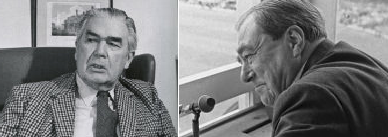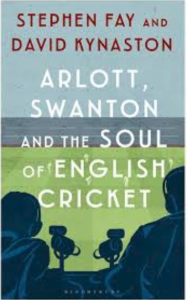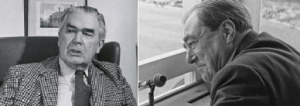
Disappearance of true spirit of cricket


This is the fascinating account of how public schoolboy Jim Swanton and Hampshire burr of the state school-educated John Arlott, the undisputed poet laureate of Test Match Special, two contrasting legendary voices resisted and lamented the rise of commercialised Twenty20 format which swept social and commercial changes that swept through cricket and Britain at large during the second half of the 20th century. Stephen Fay former editor of Wisden Cricket Monthly, and David Kynaston, a historian, recounts the circumstances, particularly driven financial overtones drove the change in the 1960s and 1970s, as first-class cricket was hijacked by the professionals as the culture of gentlemen cricketers was finally eliminated.
Money dictates how the limited-over format took shape.
Swanton, a conservative gad bemoaned “a lowering of standards” when Ray Illingworth, England’s captain threateningly wagged his finger at the Australian umpire in an Ashes test. “If the game is going to come to this sort of pass where the umpire is going to openly challenged on the field, I think that the end of cricket in the Test match sense is really pretty near.”
South Africa was an issue that divided the two men. When Arlott was asked by an immigration officer in Cape Town to fill in a box on a form marked “Race”, he responded he belonged to “the human race” and thereafter he never visited that country again. Swanton, on the other hand, was referring to black South Africans as “natives” and patronising in some of his references to them.
The episode of the late 1960s, when the Marylebone Cricket Club, the traditional guardian of the game, had to decide whether to include the non-white South African Basil D’Oliveira in the squad to tour the land of apartheid, Swanton argued the outstanding batsman be rested or else the Pretoria government would cancel the visit.
In 1977, the Australian Media tycoon Kerry Packer hired 70 of the world’s top cricketers for private tests and one-day games after the Australian Cricket Board refused to award broadcast rights to his television channel. The fact is, Packer’s intervention enhanced players’ earnings and was stepping stones to T20.
This fascinating account of how two BBC broadcasters battled for the soul of English cricket during a time change.
Arlott, Swanton and the soul of English Cricket by Stephen Fay and David Kynaston Bloomsbury £20, 400 pages
